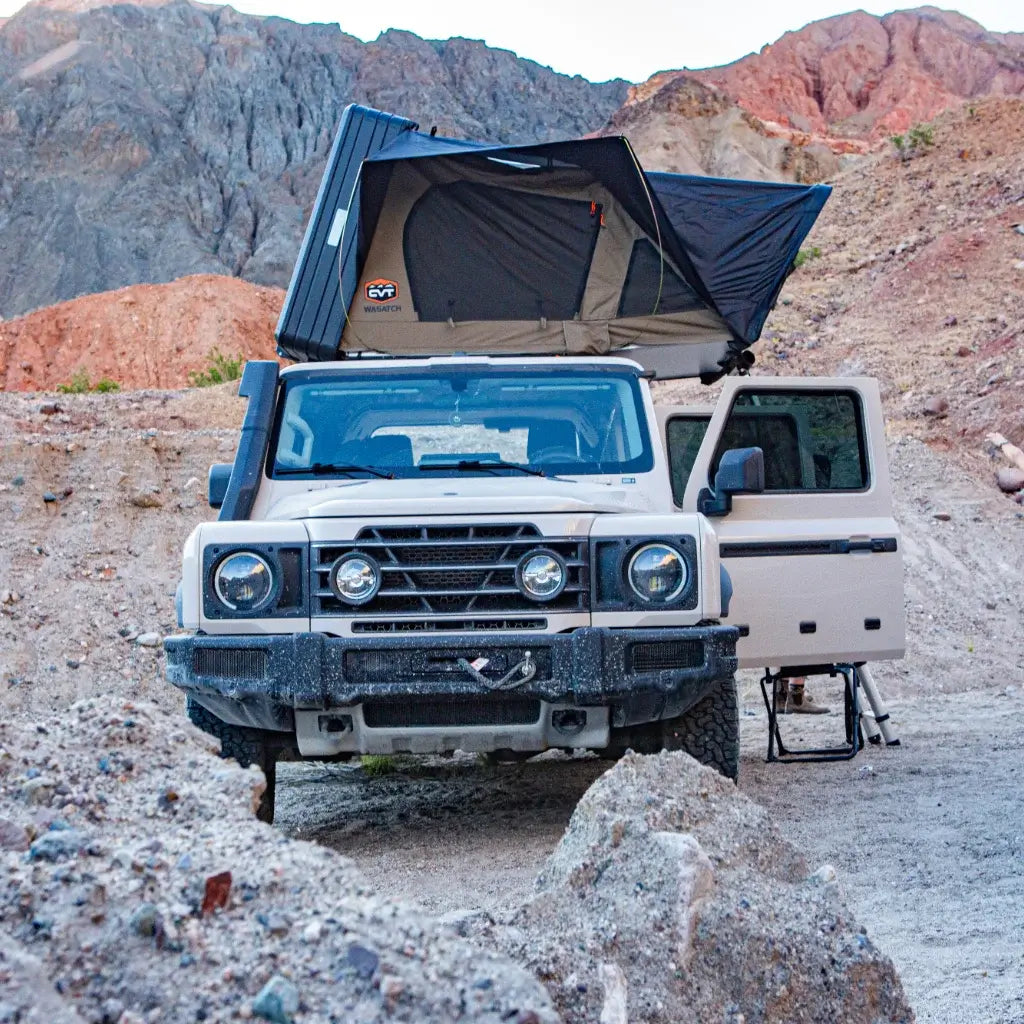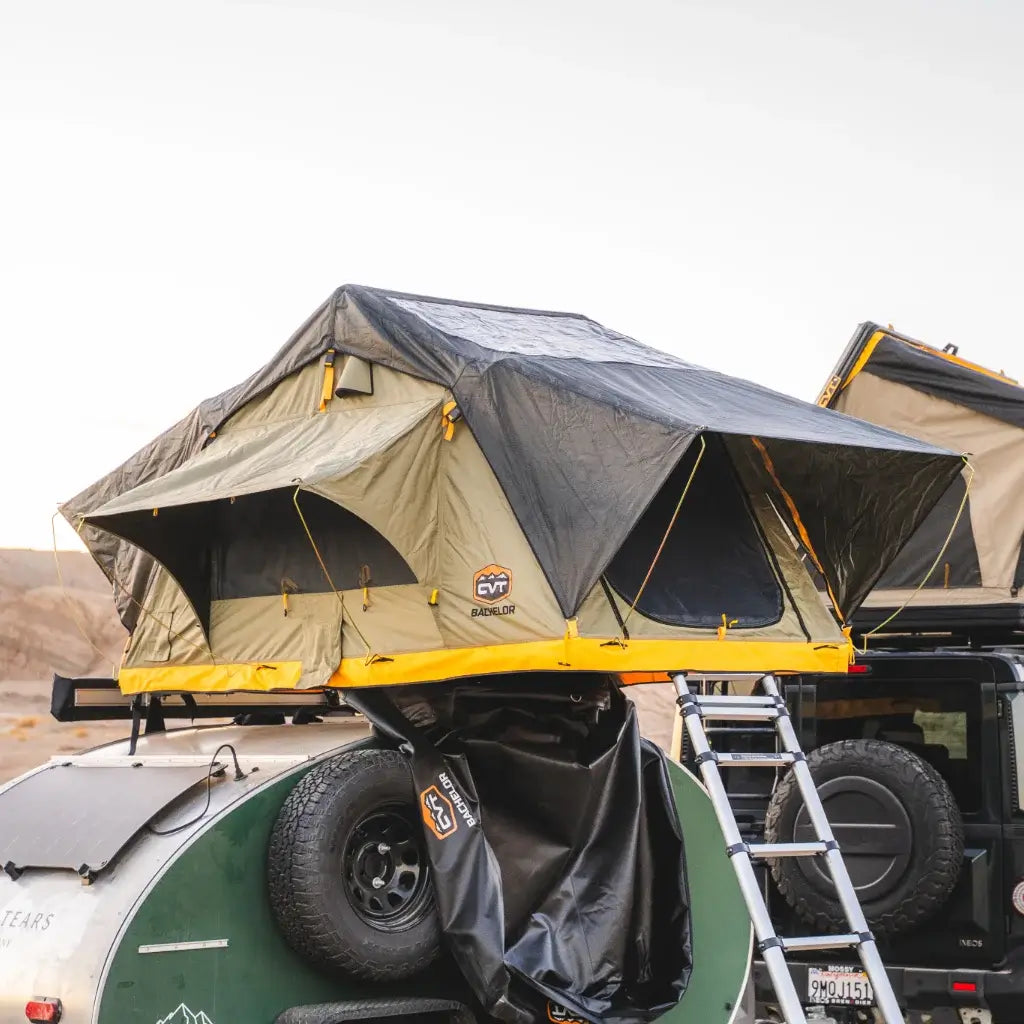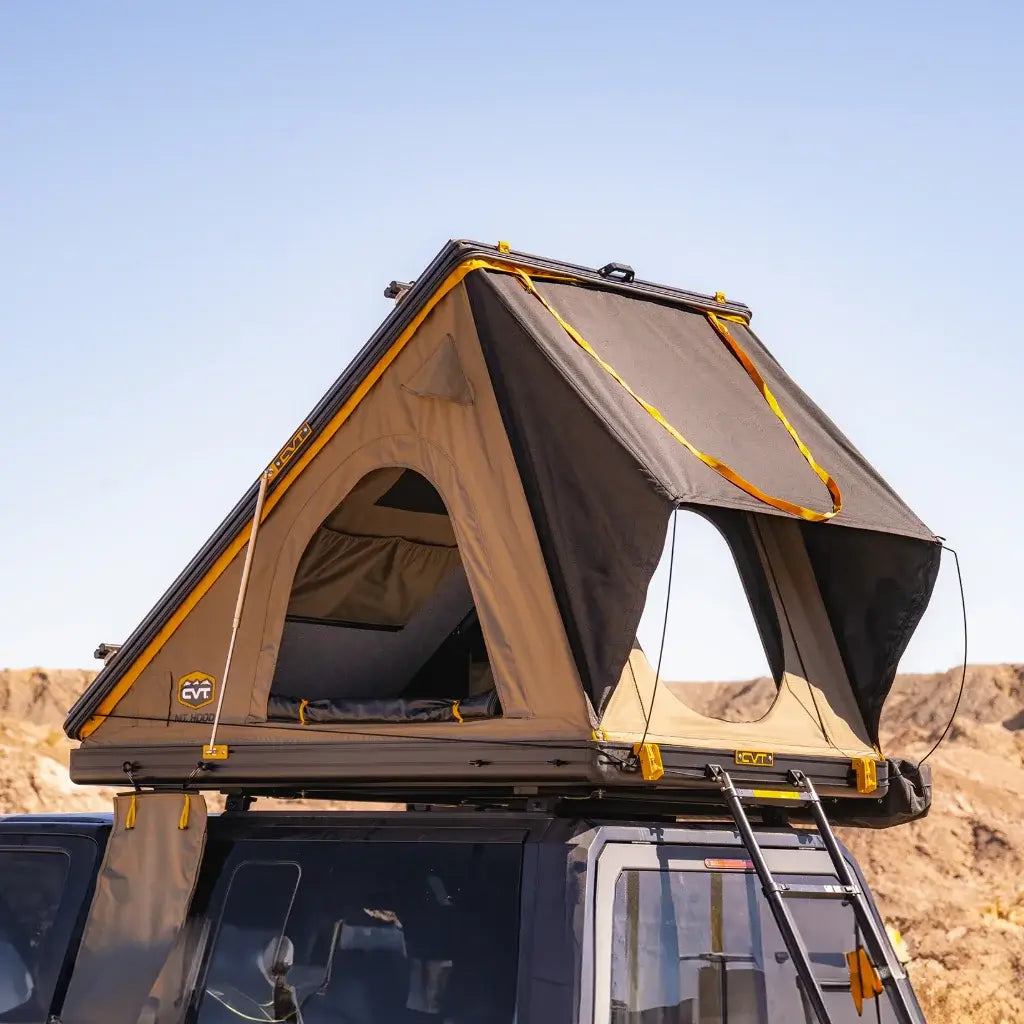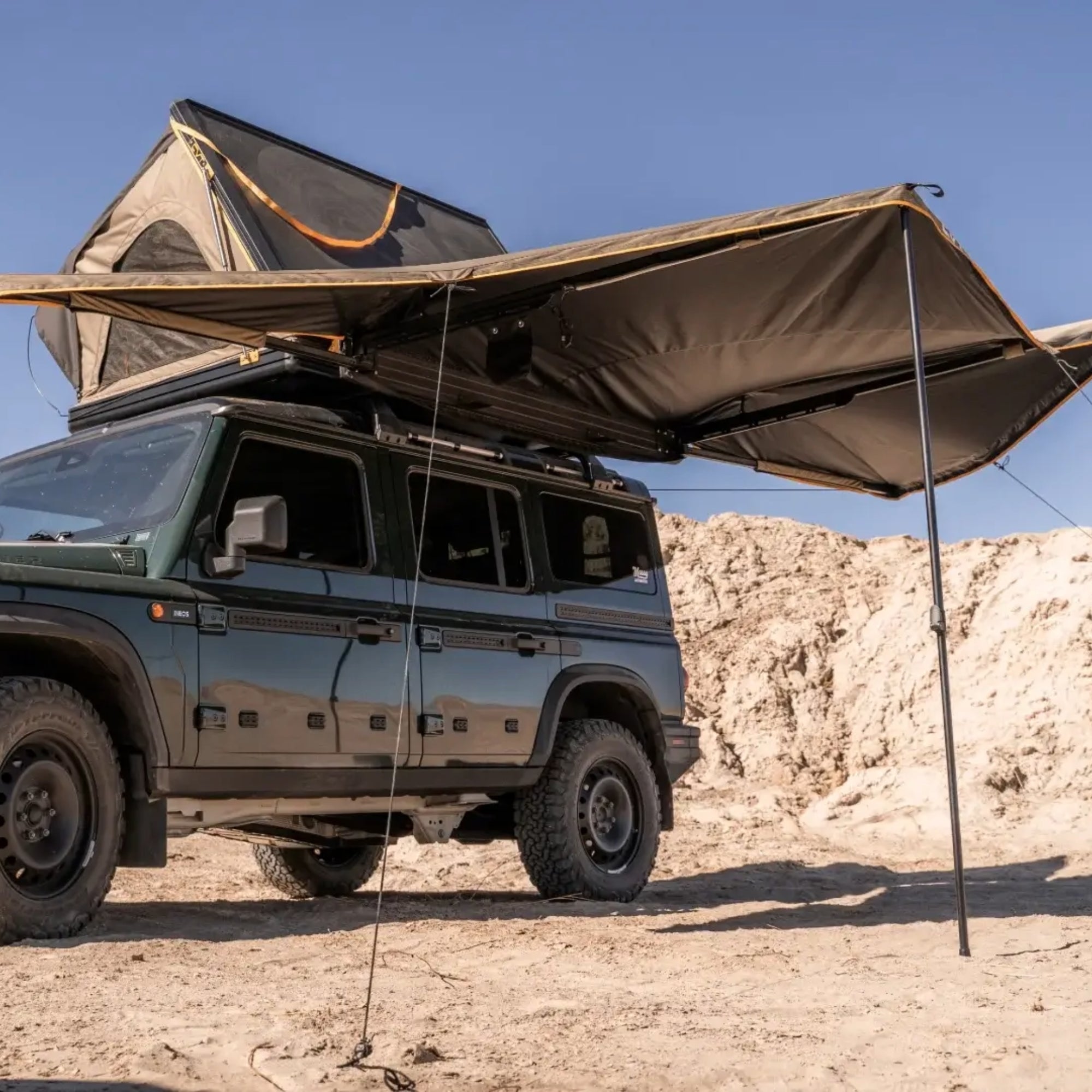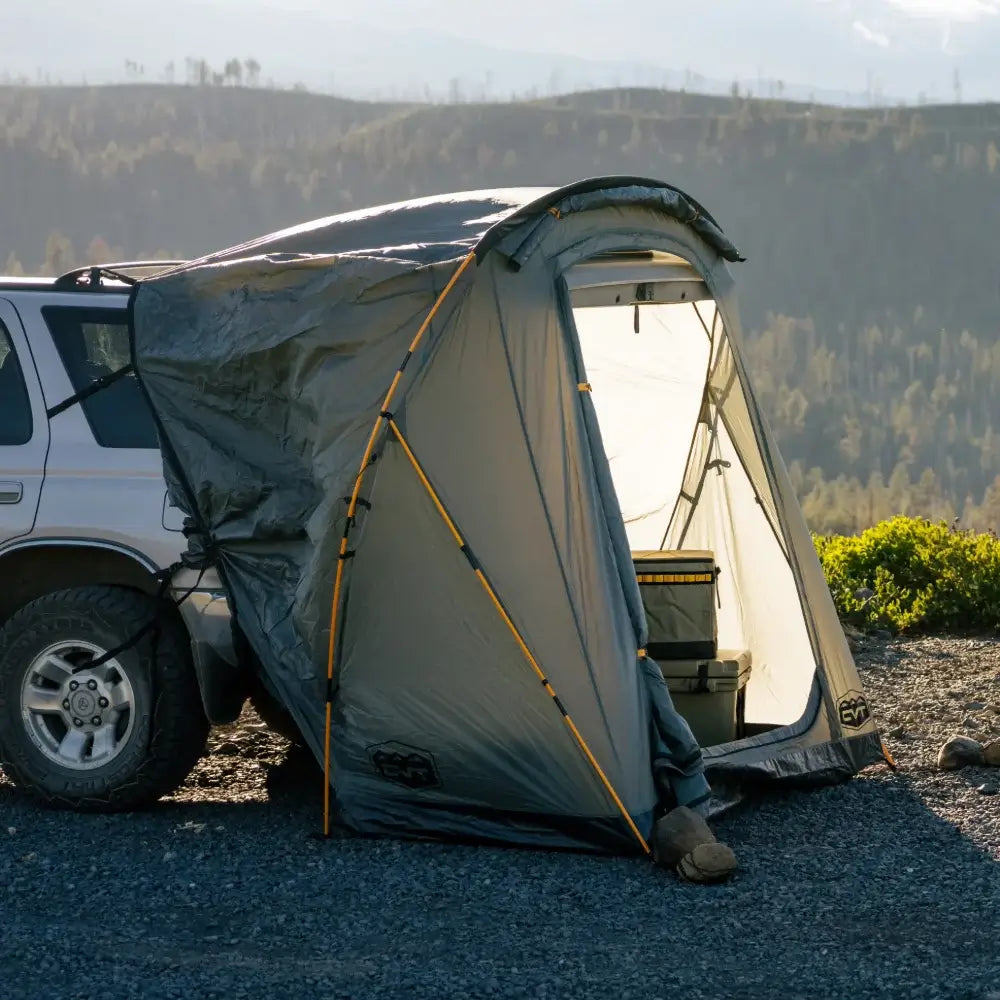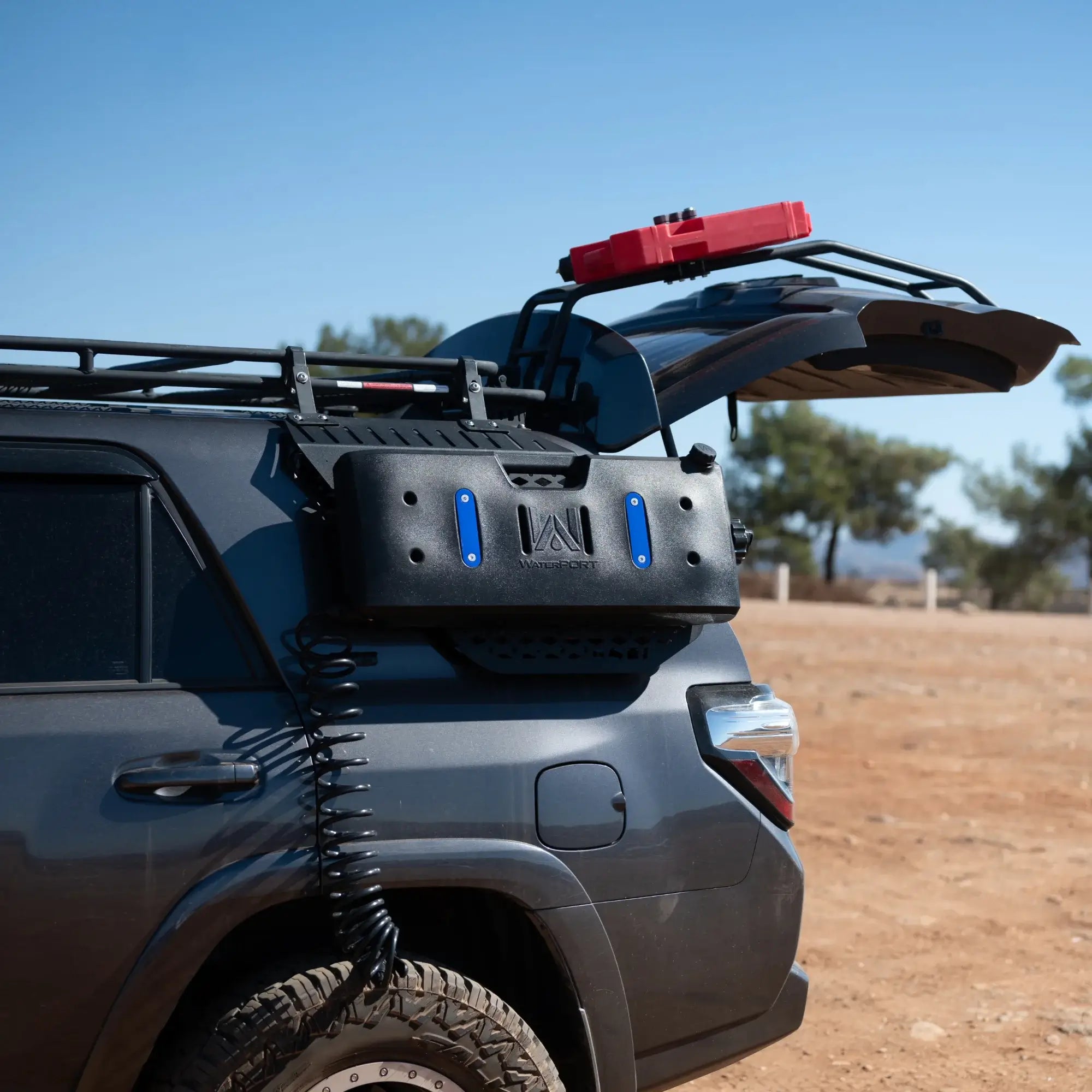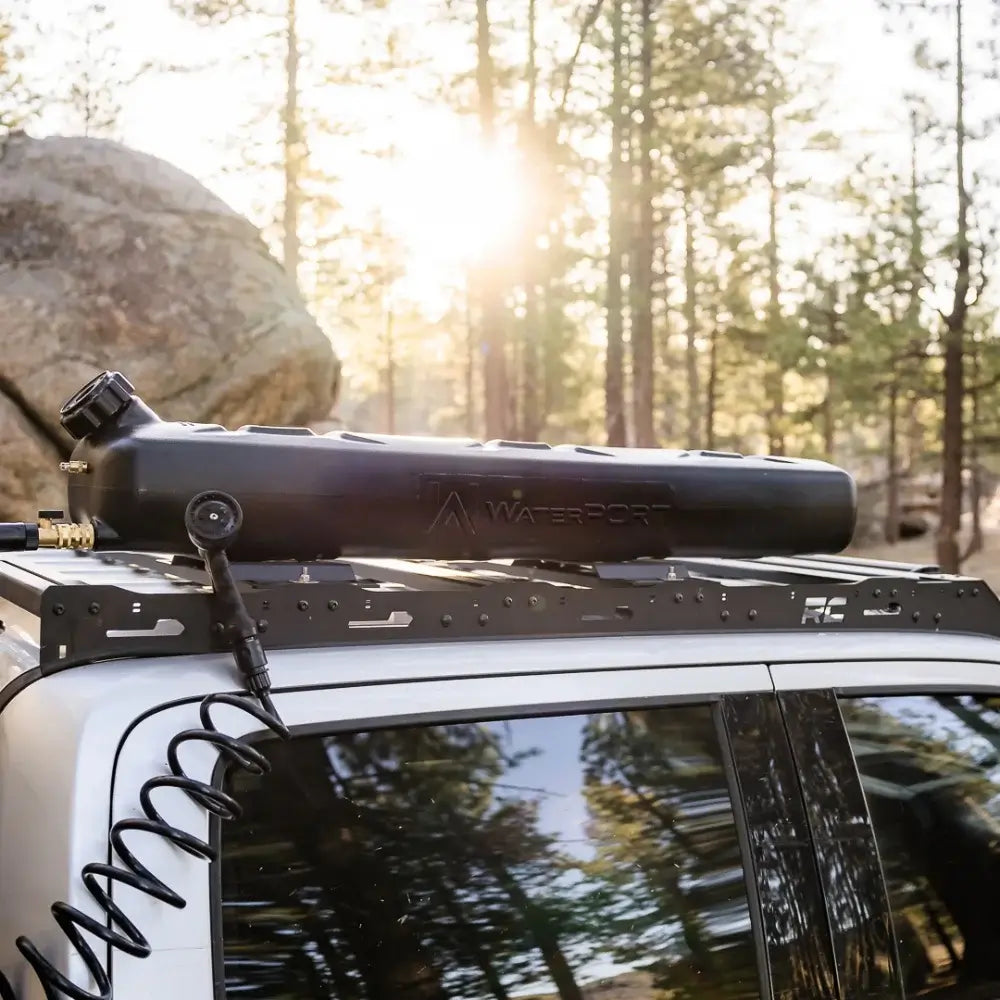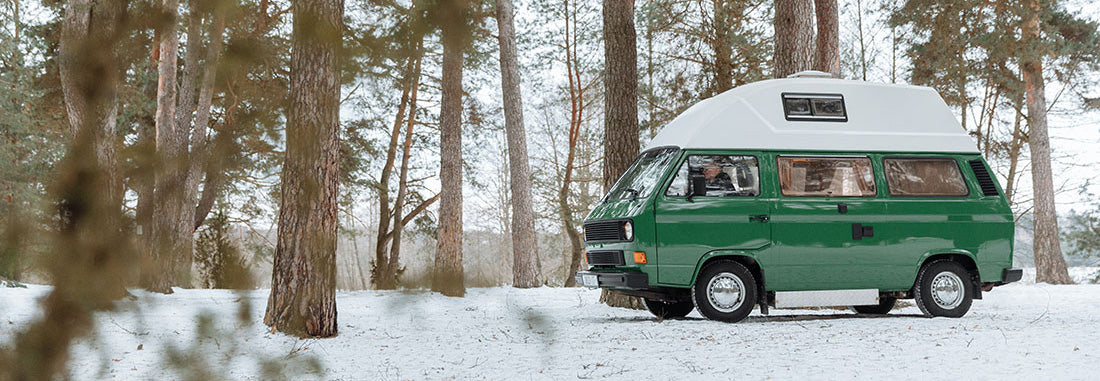
Does going camping with your car in the middle of winter sound like a crazy idea? Wait until you’ve read this guide where we have collected practical tips on how to make car camping in winter not only possible but also thoroughly enjoyable.
Where to Sleep?
The first question that comes to mind when you think about cold-weather camping is where to spend the night without freezing. There are several ways of sleeping through the night in warm conditions, namely:
Sleeping Inside a Car

Spending a winter night inside your car can be a challenge, depending on the type of vehicle you own. Here are some of the most common options:
- SUVs and trucks. In the case of winter truck camping, you can only count on your equipment, as the heating is hardly available. You can try to connect a standard space heater to your car, but the battery is only likely to last for approximately 3-4 hours. Thus, make sure you have thermal clothing and sleeping accessories to stay warm.
- Cargo vans. Keep in mind that to stay warm in a cargo van, you’ll need a thick mattress, a warm sleeping bag, and a down comforter. With all these items, sleeping in your van should be bearable even at 0°F.
- RVs and campers. Good news for the owners of RVs and campers with propane or electric heaters - you will be comfortable sleeping in your vehicle no matter the weather.
Even though some options of sleeping in the car in winter can provide you with the much-needed warmth, you risk missing out on the full experience of plunging into nature. If you want a real adventure, consider staying overnight in a tent.
Rooftop Tent

One of the most convenient ways to sleep at night when car camping in the cold is staying in a vehicle’s rooftop tent. This way, not only are you experiencing the thrill of an outdoor adventure, but you also are staying in warm and safe conditions.
There are two types of vehicle rooftop tents:
- Hard shell. Such tents are rigid enough to withstand strong winds and heavy snowfall. They also offer great sound isolation, making them a great choice for camping in any weather conditions.
- Soft shell. If you’re looking for a spacious and lightweight option, go for a soft shell tent. For additional insulation, it is recommended to invest in a cold weather cover.
If you are a very experienced camper and are looking for a way to challenge yourself, try camping out in a traditional tent pitched next to your vehicle.
Traditional Tent
 As extreme as it sounds, camping in a traditional tent in winter is possible. However, this option requires a lot more camping experience and is best to be done in bigger groups.
As extreme as it sounds, camping in a traditional tent in winter is possible. However, this option requires a lot more camping experience and is best to be done in bigger groups.
If you choose this car camping type, the major concerns for you would be the cold and the moisture created by the snow both underneath and above the tent.
You can address the first issue by getting a thermal camping tent. As for the moisture, keep it away by using a waterproof ground barrier and tarp.
Keep reading to not miss out on the complete list of camping equipment that will keep you warm on a winter’s night.
Winter Car Camping Essentials to Keep You Warm
Regardless of which type of shelter you select, it is also critical to pack specialized winter camping gear for your trip. Some essentials are:
- Thermal underwear and clothing
- A cold-weather sleeping bag
- A thermos with a hot drink
- An electric blanket
- A car camping heater
- A hot water bottle
For campers using traditional tents, it is crucial to bring additional winter equipment, such as:
- A four-season tent with insulation or a double wall
- A waterproof ground barrier
- A weather-resistant tarp for the tent
- A tent heater
Don’t forget to pack these essential items in your vehicle. Besides, remember that winter car camping should be done by experienced campers to minimize the risks.
Common Risks of Car Camping in Winter
Cold-weather camping is best-suited for seasoned travelers who have diverse experience in outdoor activities. After all, this camping variation goes hand in hand with various risks.
To make your overnight stay as safe as possible, avoid the following:
- Gas-powered heaters. Bringing an indoor gas-powered heater on your car camping trip is dangerous, as such devices are not meant for small closed spaces. Instead, get a low-wattage electric heater.
- Running the engine all night. Some campers try to keep the engine running all night to power the car heater. However, sleeping this way is not safe. The best strategy would be to switch on the heater for small bits at a time.
- Car battery overheating. When you connect a car camping heater to your vehicle’s battery, extended non-stop usage can cause the latter to overheat, get damaged, or run out of power. Use the heater wisely to avoid getting stranded in a remote area.
- Low-quality gear. While it may be tempting to obtain cheap equipment, it can have severe consequences when you are camping out in the cold. Get your outdoor gear only from trusted specialized brands for a guaranteed warm and safe experience.
Having these hazards in mind will enable you to avoid making beginners’ mistakes and enjoy your winter car camping trip to the fullest.
Have a Backup Plan

The planning process is crucial for car camping in winter. Apart from selecting the location, taking care of the navigation, food, water, and hygiene items, it is critical to ensure that you have reliable means of communication and a thought-through backup plan.
No matter how confident you are in your skills, map out the places nearby your campground where you can find food and shelter in case something goes wrong. Stay safe and enjoy your winter adventures!

